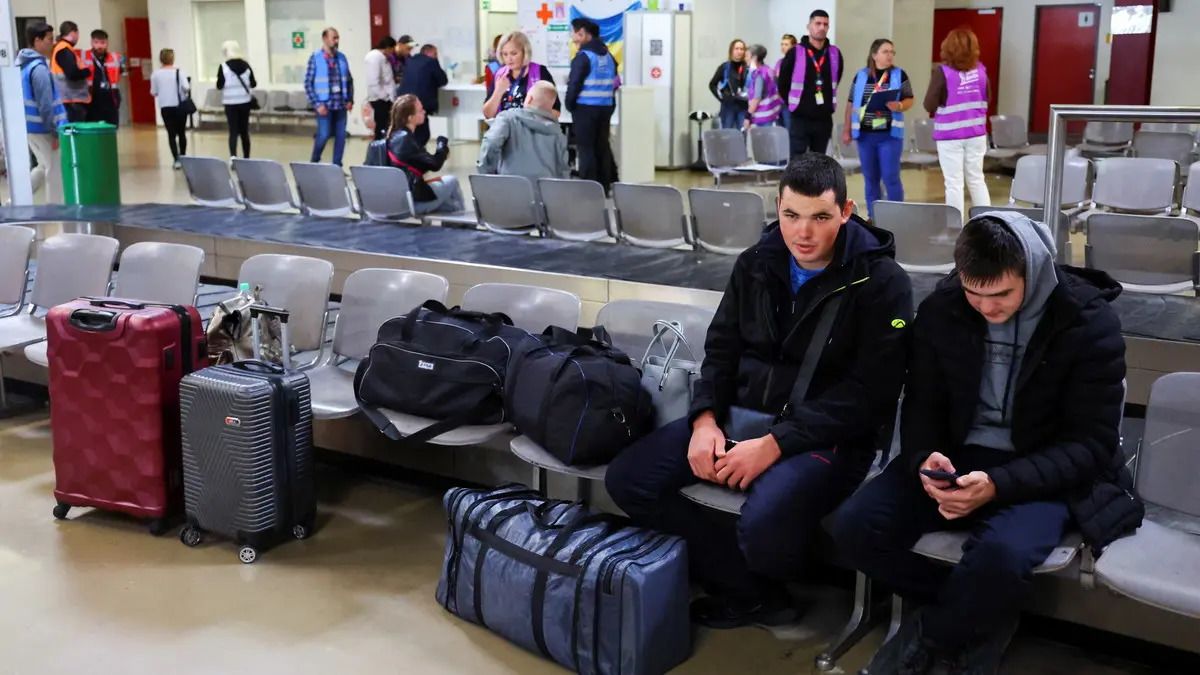
Germany Halts UN Refugee Resettlement Program Amid Coalition Negotiations
The temporary suspension affects applications and could shift the future of refugee admissions in the country.
Germany has announced a temporary cessation of its participation in a United Nations refugee resettlement program, a move confirmed by the Federal Office for Migration and Refugees (BAMF).
The decision, which halts the acceptance of new applications, was implemented during ongoing coalition negotiations involving the conservative Christian Democrats (CDU) and the center-left Social Democrats (SPD).
According to BAMF representatives, they will continue processing only those refugee cases already in advanced stages of the application process.
The UN Refugee Agency (UNHCR) in Germany, represented by spokesman Chris Melzer, expressed the expectation that the program will resume following the appointment of a new interior minister.
The program, in which Germany has actively participated since 2012, is aimed at resettling refugees who are particularly vulnerable and in need of protection, including children, victims of torture, and individuals requiring urgent medical care, who can no longer remain in their first country of arrival.
Historically, Germany has received around 5,000 refugees annually through this program, positioning itself as the third-largest host nation following the United States and Canada.
A significant proportion of those resettled under this initiative have come from Syria, with additional numbers from Iraq, Yemen, Sudan, South Sudan, the Democratic Republic of Congo, Somalia, and Eritrea.
Germany has committed to the European Commission to admit a total of 6,550 refugees in 2024 and 2025, a commitment that is supported by EU funding.
The recent halt comes amid discussions surrounding immigration policy, which have become a focal point for Friedrich Merz, a leading figure in the CDU and a potential future Chancellor.
In the context of upcoming federal elections, Merz has emphasized immigration as a critical issue, seeking to address public concerns about the intersection of immigration and crime, despite evidence indicating the lack of a direct correlation.
Previous attempts by Merz to enact stricter immigration legislation—such as implementing permanent border controls—faced significant opposition and were seen as catering to far-right voters.
As negotiations continue regarding the governing coalition's direction, indications suggest a shift away from traditional refugee resettlement programs in favor of new initiatives that align with Germany's labor market needs.
These proposed changes could include the closure of similar schemes, notably one that resettles individuals fleeing Taliban rule in Afghanistan.
The UNHCR has also expressed concern regarding the policies of other nations, such as the United States, where the previous administration under President Trump had withdrawn from participating in the resettlement program, despite a court order mandating the resumption of applications.
The decision, which halts the acceptance of new applications, was implemented during ongoing coalition negotiations involving the conservative Christian Democrats (CDU) and the center-left Social Democrats (SPD).
According to BAMF representatives, they will continue processing only those refugee cases already in advanced stages of the application process.
The UN Refugee Agency (UNHCR) in Germany, represented by spokesman Chris Melzer, expressed the expectation that the program will resume following the appointment of a new interior minister.
The program, in which Germany has actively participated since 2012, is aimed at resettling refugees who are particularly vulnerable and in need of protection, including children, victims of torture, and individuals requiring urgent medical care, who can no longer remain in their first country of arrival.
Historically, Germany has received around 5,000 refugees annually through this program, positioning itself as the third-largest host nation following the United States and Canada.
A significant proportion of those resettled under this initiative have come from Syria, with additional numbers from Iraq, Yemen, Sudan, South Sudan, the Democratic Republic of Congo, Somalia, and Eritrea.
Germany has committed to the European Commission to admit a total of 6,550 refugees in 2024 and 2025, a commitment that is supported by EU funding.
The recent halt comes amid discussions surrounding immigration policy, which have become a focal point for Friedrich Merz, a leading figure in the CDU and a potential future Chancellor.
In the context of upcoming federal elections, Merz has emphasized immigration as a critical issue, seeking to address public concerns about the intersection of immigration and crime, despite evidence indicating the lack of a direct correlation.
Previous attempts by Merz to enact stricter immigration legislation—such as implementing permanent border controls—faced significant opposition and were seen as catering to far-right voters.
As negotiations continue regarding the governing coalition's direction, indications suggest a shift away from traditional refugee resettlement programs in favor of new initiatives that align with Germany's labor market needs.
These proposed changes could include the closure of similar schemes, notably one that resettles individuals fleeing Taliban rule in Afghanistan.
The UNHCR has also expressed concern regarding the policies of other nations, such as the United States, where the previous administration under President Trump had withdrawn from participating in the resettlement program, despite a court order mandating the resumption of applications.
Translation:
Translated by AI
AI Disclaimer: An advanced artificial intelligence (AI) system generated the content of this page on its own. This innovative technology conducts extensive research from a variety of reliable sources, performs rigorous fact-checking and verification, cleans up and balances biased or manipulated content, and presents a minimal factual summary that is just enough yet essential for you to function as an informed and educated citizen. Please keep in mind, however, that this system is an evolving technology, and as a result, the article may contain accidental inaccuracies or errors. We urge you to help us improve our site by reporting any inaccuracies you find using the "Contact Us" link at the bottom of this page. Your helpful feedback helps us improve our system and deliver more precise content. When you find an article of interest here, please look for the full and extensive coverage of this topic in traditional news sources, as they are written by professional journalists that we try to support, not replace. We appreciate your understanding and assistance.










